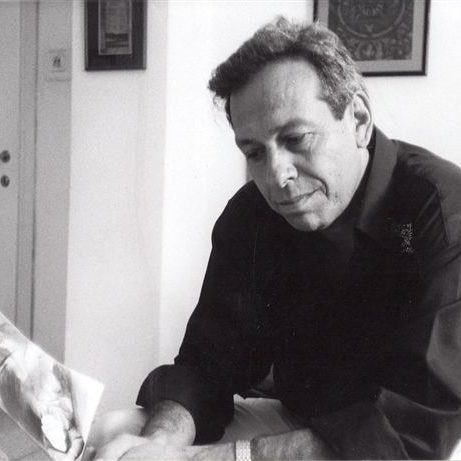The shadow of childhood (the difficult, dark, and hidden part of childhood) and the wounds of childhood in it accompany our lives and are sometimes a major source of pain and mental and emotional problems later. From childhood, we experience different complexes that have developed, various survival mechanisms, various justifications for these and other behaviors, and sometimes an endless search for healing and some kind of compensation, and even some sweet illusions entering that someone can be the healer of that wound
The article will try to shed some light mainly on those cases in which the need for compensation is inexhaustible on the part of the family and the immediate environment, on society, or the establishment, where the needs are never met, and frustration is great and takes over. At the same time, alongside all this, in these cases, self-justification sometimes develops for any difficult, destructive, offensive, demanding behavior that becomes legitimate out of that arbitrary and existing vulnerability
We will try to emphasize the many justifications and narratives that have developed in the person following distress but always allow excuses and explanations for any behavior, alongside this we will mention various patients whose therapeutic fantasy is healing, correction, or therapeutic experience of someone who will be for them the healing object, but the wish remains of a childlike nature; That someone, a spouse, their child or a new caregiver "fix me will heal me". The wish is not that I, the patient, through the process will do inner work. Or I, with the help of the therapist, will understand and learn to accept what can and cannot be corrected and accept it as part of my destiny
In the article, we will try to separate a child who is in therapy or adolescence from an adult in life or in his forties and fifties who is already in the process of individuation, that is, in a process of a deeper and more integrative knowledge of himself
By individuation, we mean that process of self-revelation in which a more and more courageous connection to who you really are begins and continues, including understanding your childhood, what was and wasn't, and your good and bad qualities This is a process, a journey that involves inner work and integration of the different parts of ourselves, of the ability to accept the wounds of childhood, our fate in general, and of developing the ability to contain and know what is and what is not possible to change in us. It is a process in which we must find the inner strength and meaning of things and choices, take care of the other or handle what is possible, and learn to contain and accept with self-compassion what is impossible
We will try to show how the inner work of acceptance, inclusion, self-compassion, and inner parenting succeeds in giving the wounds of childhood a new dimension and perspective within the whole. We will also emphasize how healing by understanding meaning rather than healing, correction, or compensation advances a person. We will certainly emphasize that it is necessary to give up the difficult and painful relinquishment of the fantasy that someone, as an imaginary parent, will do this for us as a healing self
The Cohootian Wish for Others Healing our own Self vis a vis the Process of Individuation
A difficult, missing, or traumatic childhood sometimes casts a dark shadow over a person's life. That basic initial period should give us the emotional basis, confidence, and ground on which our personality will grow. But the same infrastructure is sometimes the same source of trouble, difficulties, frustrations, and vulnerability
These initial bad experiences have become a source of emotional problems, personality complexes, deprivations, and recurring unhealthy patterns in new relationships or sometimes emotional disconnections and splits that interfere with functioning. The problems that arise sometimes interfere with the creation of stable relationships, the building of a stable personality, or enormous needs for compensation and correction that often fail and provoke various frustrations
As for the treatment and the possibility of repairing, improving, cure childhood
"Psychotherapy provides a temporary solution to the missing functions of the self-object, using the transference relationship, allowing the patient to re-experience his self." Kohut"
Psychology and analytical dynamic psychotherapy try to help and treat various distress and mental problems through treatment processes that see childhood as a central source of problems. drive theories, self-psychology, and object relations also emphasize primary relationships and attempt to deal with the problems created through understanding early childhood. They try to treat early relationships, improve the strength of the self, strengthen the connection to the primary self, and provide a solution that will allow people to function and enter the burden of life, new connections, and proper functioning according to the types of problems
It would be correct to say that many cases are assisted by therapy because they undergo a corrective emotional experience and a higher awareness of themselves. Some improve the emotional basis and help the child, teenager, or young man overcome childhood wounds and early traumas to enter life, functioning, and relationships in a new and improved way
In the language of psychology, successful treatment leads to an improvement in object relations, a better connection to the self, better impulse control, and a more compatible feeling for better enjoyment and satisfaction from life. But all these treatments that help improve and strengthen do not always heal and change a person's basic distresses and certainly not the part of his fate that cannot be changed. The scars remain, and often, the wish to heal, change fate, and basic personality remains in the person's psyche. therefore, often, and even often, patients come for various repeat treatments, change therapists, expect, are disappointed, and remain frustrated. Sometimes, they will feel that they have not yet reached the perfect special therapist who will do the ultimate healing through which the basic problem he has been carrying since childhood wishes to be solved
Sometimes, this wish and even fantasy enters close relationships like a marriage relationship: "She is charming and perfect," and she will heal a narcissistic wound that I have carried since childhood, or he is strong and stable and will heal my existential anxiety, or he or she will heal my wound with my mother or father. Often, the fantasy of healing is not always conscious and even enters the parenting experience of that person with unconscious expectations towards his children: a healing attitude that I will receive from the successful son or correction with and through a sensitive and wise daughter. Even in relationships with a boyfriend or girlfriend, a hidden wish for repair, compensation, or healing. And certainly, we will sometimes see some reconstruction of patterns from the initial relationship
These wishes for healing are not incomprehensible and are sometimes even the initial basis for close relationships that are formed, but usually, when people develop throughout life, and this is what usually happens, then there is a need to change patterns, let go, and move towards a process that expands and connects the person to the whole self. When one partner needs the same expansion, release, and reach for himself, it is not always in accordance and timing for the other partner, who can be more injured from his childhood, for example. Certainly, it will not be the case respectively when a child, son, or daughter has come to become independent, and the mother or father is not yet ready for it and needs one of the children to lean on them emotionally and live through that fantasy of healing
If we return to the various types of mental health treatment and to what extent it is concentrated in childhood and see it as the main source of correction and fulfillment of primary needs, and deal from this perception less with the psyche as an internal source of self-healing, and as a system with the ability to provide strengthening and empowering substances, we will inevitably place the central weight on the therapist-patient relationship and the experience of the mother-child therapeutic relationship as a central source of healing
Are these conclusions about the source of change and development always correct? Will there always be healing or change, and will it happen from within the mother-child relationship? Can there be a change that is not necessarily healing? Or will the relationship just be a trigger for raising projection materials and internal work in therapy? Above all, our question here will be, would it be right to emphasize repairing primary relationships through the therapist's attitude and tacitly feed the illusion that the therapeutic relationship will repair the basic wound? Especially when it is so primal, "ancient!
This is where the concept of the individuation process comes in, a process during which the individual becomes increasingly aware of his wholeness and unique self and better recognizes another as one who sometimes carries parts of his parts and projections but not necessarily as a parent or the other self-object. Awareness includes childhood and its difficulties, the process of life itself, the different choices he made, those parts that are less loved and accepted by us that are projected onto others that are the shadow, and those contradictions that exist within us of which we were not always aware. Awareness is also of knowing those parts and their meaning and spiritual parts of things
In this process, a person is exposed more and more to what he is and what he is not, to what he wants and what he would not want to be, and what is of others and what is his, but the process must take place with hard inner work, usually with the help of someone who is an object of projection and not necessarily self-object, one who can change with him in a mutual relationship in order to receive different sides as part of him. In this process, a person learns to accept and live with difficult parts of himself, with wounds that will not heal, with what belongs to others and what he lacks, with injuries that will never heal, and with self-acceptance of parts of fate that will not change. Even the therapist, like the same person, sometimes projects and learns to know himself and the patient, the parts that have not been integrated within himself
The process of self-acceptance of the patient includes an understanding of what cannot be changed, including giving up various illusions regarding the treatment, the therapist's character, what is above and beyond us, and our immortality. It is a process that helps us understand the meaning of our choices in life, childhood and its components, adolescence that sometimes marks our family ties, the vulnerability we cannot heal, and the things we will not be able to achieve
This process of discovering our self, with its various parts and unique shades, including accepting what we cannot heal or change and giving up illusions, requires courage, inner work, and a willingness to endure pain. It also requires a connection to compassion and self-acceptance
When this process is done in therapy, the therapist will also be willing to have mutual influence and to understand new parts of himself through the patient. The principle is not necessarily anything other than self, such as childhood, but mutual relationships, albeit asymmetrical ones in which the therapist also sometimes connects to new parts of himself or re-treats unprocessed parts
Individuation refers to the inner work of getting to know the unconscious and its parts and accepting our destiny our uniqueness and temporality as opposed to eternity


